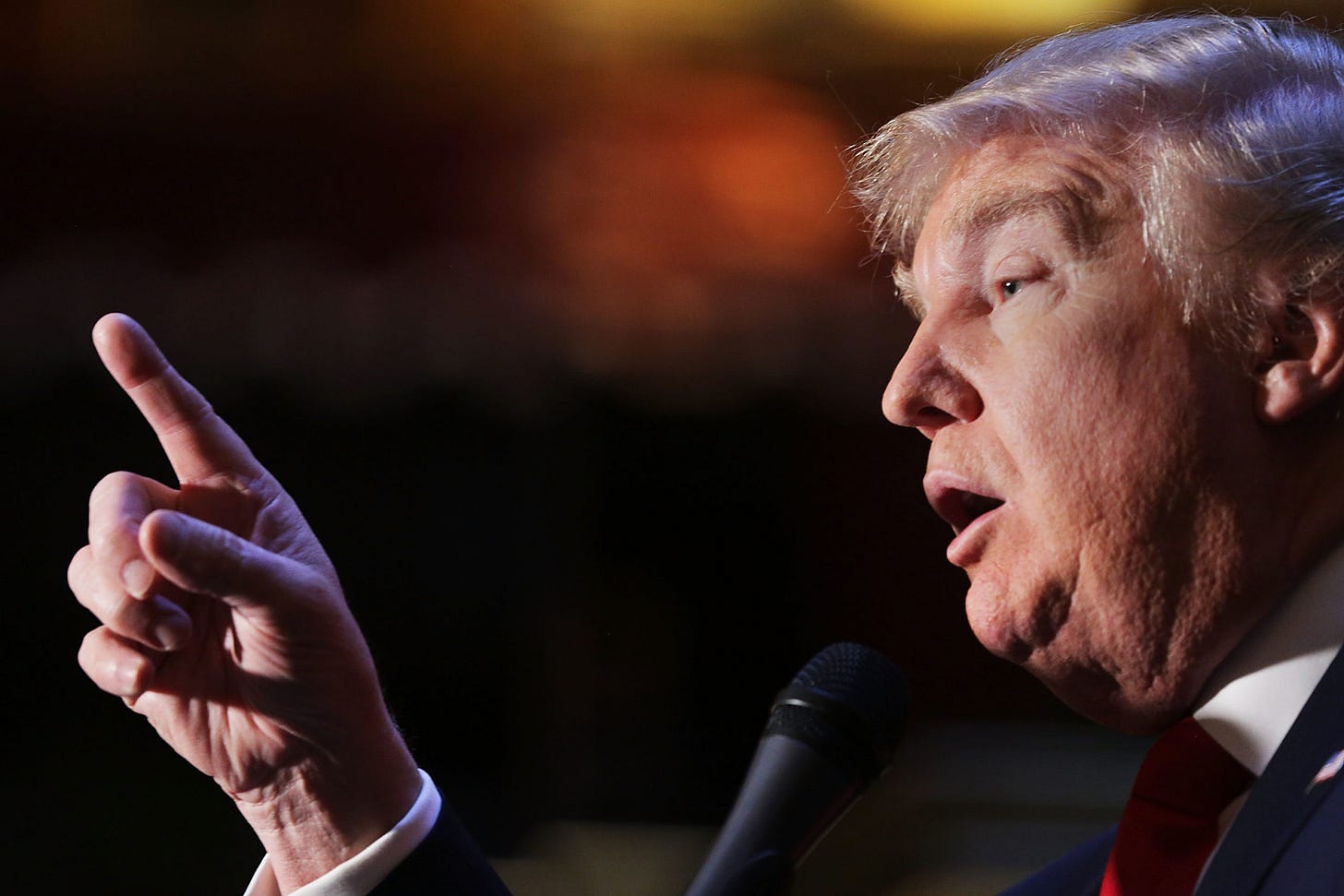Donald Trump’s O.J. Defense
His apologists keep shifting their arguments—desperately trying to sow confusion and doubt.
It’s stunning how quickly the public debate has evolved over the FBI search of Donald Trump’s Mar-a-Lago residence. Aside from Attorney General Merrick Garland’s remarks yesterday and a legal filing requesting the judge to unseal the search warrant, the Department of Justice has made no official statements. Unofficially, though, unnamed “people familiar with the investigation” have told the Washington Post that “classified documents relating to nuclear weapons” were allegedly among the things the FBI was looking for.
Meanwhile, Trump, his attorneys, and his proxies appearing on TV and talk radio have been changing their talking points with whiplash-inducing rapidity. On Monday night, everything was end-of-the-republic cries of doom. Then came all the talk of “defunding” the FBI.
Although many crucial details have yet to become public, based on what we already know it seems highly likely that the FBI found incriminating evidence—not just regular presidential records that belonged in the National Archives under the terms of the Presidential Records Act, but also classified documents—when it executed the search warrant at Mar-a-Lago. This seems a safe bet not just because of the Post’s report about what the FBI was looking for, but because of how Trump and his defenders reacted to the search.
If Trump didn’t know that the FBI had caught him with documents he shouldn’t have, he wouldn’t be asserting the O.J. Defense.
A refresher for anyone too young to remember: In 1995, football great O.J. Simpson was tried for the murder of his ex-wife Nicole and her boyfriend Ronald Goldman the year before. The case against him looked airtight. A mountain of forensic evidence—including blood and hair and fibers, bloody shoe prints, and a glove found at the scene matching one of Simpson’s—pointed to his guilt. And as if the forensic evidence weren’t enough, prosecutors presented evidence of Simpson’s pathological jealousy, his history of domestic violence and threats, and the lack of an alibi or any witnesses to his whereabouts at the time of the murders.
Yet Simpson was acquitted. His defense team turned the tables to portray law enforcement as the culprit and Simpson as the victim. They argued, without a shred of direct evidence, that all of the incriminating forensic evidence was either planted by police officers who were out to get Simpson or mishandled by bumbling investigators.
This week, it was Trump preemptively asserting the O.J. Defense. By Tuesday morning, one of Trump’s lawyers, Christina Bobb, was crying foul, suggesting that the FBI had planted evidence. Bobb, who was present during the search and presumably had some information about what documents had been seized by the FBI, took to the airways to proclaim that “there is no security that something wasn’t planted.” Trump himself doubled down: “Everyone was asked to leave the premises, they wanted to be left alone, without any witnesses to see what they were doing, taking or, hopefully not, ‘planting.’” Shortly thereafter, several of Trump’s high-profile supporters joined the chorus.
Preemptively invoking the O.J. Defense is more than a little telling. It strongly suggests consciousness of guilt.
You don’t claim, without a shred of evidence, that law enforcement planted documents during a search and seizure unless you believe that they found something incriminating. If you believe that the evidence seized was exculpatory or merely innocuous, you don’t cast doubt on it. Just the opposite. You use the evidence to your advantage. You talk about birthday cards, personal notes to your family, copies of newspaper clippings and the like. Then you bide your time until you can say “I told you so.”
The allure of the O.J. Defense to Team Trump, of course, is that it erases everything. It doesn’t matter how incriminating the evidence is against him. Whatever the evidence, if Team Trump can convince people that it was planted, it’s toothless as far as the public is concerned. So it is incumbent on the government to get this right. We can only hope that the FBI agents who conducted the search created a meticulous record of what they found at Mar-a-Lago and where they found it. Without a bulletproof chain of custody, Trump’s O.J. Defense could work, just like it worked for O.J., no matter what they actually found.
Since Garland’s statement yesterday afternoon and the Washington Post revelation from last night, the Trump apologists’ talking points have shifted yet again—now they’re arguing that Trump himself had declassified any documents taken from Mar-a-Lago, apparently by merely deciding silently that they were no longer classified. (This wishing-makes-it-so argument brings back memories of Richard Nixon saying “when the president does it . . . that means that it is not illegal.”)
The fact that the arguments made by Trump’s defenders contradict one another—were the documents planted or were they magically declassified?—doesn’t matter to them one whit. After all, the arguments are not intended to persuade a judge or anyone else for whom logical consistency matters. The arguments are intended to sow confusion among Trump supporters, to get them to doubt anything the FBI says about Trump.
Many hardcore Trump supporters have surely already accepted the O.J. Defense and will never stop believing that incriminating evidence found at Mar-a-Lago was planted. As a matter of politics, that’s no surprise: the devotion of Trump’s admirers is already a defining fact of our moment. But consider what it could mean as a matter of justice. If Trump were indicted and tried for crimes based on anything found at Mar-a-Lago, the O.J. Defense could work. Maybe it wouldn’t get him acquitted, but it would only take a single Trump die-hard to hang the jury. In the end, that may be Trump’s best—and perhaps only—defense.



